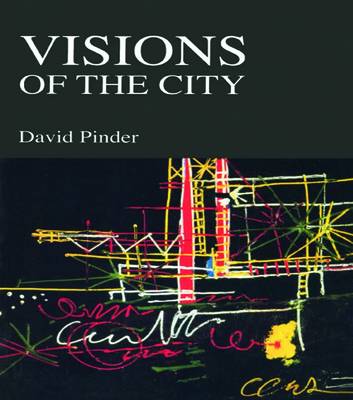
- Retrait gratuit dans votre magasin Club
- 7.000.000 titres dans notre catalogue
- Payer en toute sécurité
- Toujours un magasin près de chez vous
- Retrait gratuit dans votre magasin Club
- 7.000.0000 titres dans notre catalogue
- Payer en toute sécurité
- Toujours un magasin près de chez vous
Visions of the City
Utopianism, Power and Politics in Twentieth Century Urbanism
David Pinder
Livre relié | Anglais
195,95 €
+ 391 points
Format
Description
Visions of the City is a dramatic history of utopian urbanism in the twentieth century. It explores radical demands for new spaces and ways of living, and considers their effects on planning, architecture and struggles to shape urban landscapes. The author critically examines influential utopian approaches to urbanism in western Europe associated with such figures as Ebenezer Howard and Le Corbusier, uncovering the political interests, desires and anxieties that lay behind their ideal cities. He also investigates avant-garde perspectives from the time that challenged these conceptions of cities, especially from within surrealism. At the heart of this richly illustrated book is an encounter with the explosive ideas of the situationists. Tracing the subversive practices of this avant-garde group and its associates from their explorations of Paris during the 1950s to their alternative visions based on nomadic life and play, David Pinder convincingly explains the significance of their revolutionary attempts to transform urban spaces and everyday life. He addresses in particular Constant's New Babylon, finding within his proposals a still powerful provocation to imagine cities otherwise. The book not only recovers vital moments from past hopes and dreams of modern urbanism. It also contests current claims about the 'end of utopia', arguing that reconsidering earlier projects can play a critical role in developing utopian perspectives today. Through the study of utopian visions, it aims to rekindle elements of utopianism itself. A superb critical exploration of the underside of utopian thought over the last hundred years and its continuing relevance in the here and now for thinking about possible urban worlds. The treatment of the Situationists and their milieu is a revelation. David Harvey, Distinguished Professor of Anthropology, City University of New York Graduate School
Spécifications
Parties prenantes
- Auteur(s) :
- Editeur:
Contenu
- Nombre de pages :
- 368
- Langue:
- Anglais
Caractéristiques
- EAN:
- 9780415953108
- Date de parution :
- 24-01-06
- Format:
- Livre relié
- Format numérique:
- Genaaid
- Dimensions :
- 163 mm x 236 mm
- Poids :
- 780 g

Les avis
Nous publions uniquement les avis qui respectent les conditions requises. Consultez nos conditions pour les avis.






